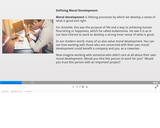
Defining Moral Development
- Subject:
- Business and Communication
- Material Type:
- Interactive
- Provider:
- Michigan Virtual
- Date Added:
- 06/26/2019

Defining Moral Development
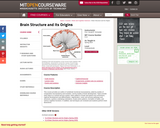
This course provides an outline of vertebrate functional neuroanatomy, aided by studies of comparative neuroanatomy and evolution, and by studies of brain development. Topics include early steps to a central nervous system, basic patterns of brain and spinal cord connections, regional development and differentiation, regeneration, motor and sensory pathways and structures, systems underlying motivations, innate action patterns, formation of habits, and various cognitive functions. In addition, lab techniques are reviewed and students perform brain dissections.
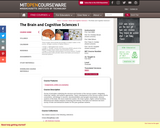
Survey of principles underlying the structure and function of the nervous system, integrating molecular, cellular, and systems approaches. Topics: development of the nervous system and its connections, cell biology or neurons, neurotransmitters and synaptic transmission, sensory systems of the brain, the neuroendocrine system, the motor system, higher cortical functions, behavioral and cellular analyses of learning and memory. First half of an intensive two-term survey of brain and behavioral studies for first-year graduate students. Open to graduate students in other departments, with permission of instructor.
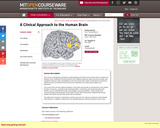
This course is designed to provide an understanding of how the human brain works in health and disease, and is intended for both the Brain and Cognitive Science major and the non-Brain and Cognitive Science major. Knowledge of how the human brain works is important for all citizens, and the lessons to be learned have enormous implications for public policy makers and educators. The course will cover the regional anatomy of the brain and provide an introduction to the cellular function of neurons, synapses and neurotransmitters. Commonly used drugs that alter brain function can be understood through a knowledge of neurotransmitters. Along similar lines, common diseases that illustrate normal brain function will be discussed. Experimental animal studies that reveal how the brain works will be reviewed. Throughout the seminar we will discuss clinical cases from Dr. Byrne's experience that illustrate brain function; in addition, articles from the scientific literature will be discussed at each class.
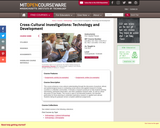
This course enhances cross-cultural understanding through the discussion of practical, ethical, and epistemological issues in conducting social science and applied research in foreign countries or unfamiliar communities. It includes a research practicum to help students develop interviewing, participant-observation, and other qualitative research skills, as well as critical discussion of case studies. The course is open to all interested students, but intended particularly for those planning to undertake exploratory research or applied work abroad. Students taking the graduate version complete additional assignments.
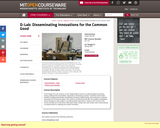
This course focuses on Third World development using case studies and team collaboration. Students draw lessons from success stories and identify challenges, unintended consequences and failures in implementing technologies, projects and policies. Students acquire skills in the building of partnerships and learn how to pilot, implement, and scale-up a selected innovation for the common good. Teams develop an idea, project or business plan that is ready to roll by semester's end.
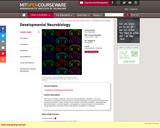
Considers molecular control of neural specification, formation of neuronal connections, construction of neural systems, and the contributions of experience to shaping brain structure and function. Topics include: neural induction and pattern formation, cell lineage and fate determination, neuronal migration, axon guidance, synapse formation and stabilization, activity-dependent development and critical periods, development of behavior.
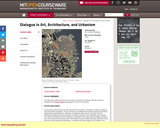
Subject engages a dialogue with architecture and urbanism from the perspective of the visual artist. Ideas investigated thematically from early modernist practices to the most recent examples of contemporary production. Art making as an adjunct to the design process is challenged by both synthetic and critical models of production. Visual art practice is examined as a conceptual prologue to architectural and urbanistic thinking, as an integrated part of the design process, and as a critical epilogue. Lectures and discussions lead to the development of realized projects to be coordinated with architectural studio. In this class we will examine how the idea of the city has been "translated" by artists, architects, and other diverse disciplines. We will consider how collaborations between artists and architects might provide opportunities for rethinking / redesigning urban spaces. The class will look specifically at planned cities like Brasilia, Las Vegas, Canberra, and Celebration and compare such tabula rasa designs with the redesign of recyclable urban spaces demonstrated in projects such as Ground Zero, Barcelona 2004, and Boston's Rose Kennedy Greenway. While the course will involve some reading and discussion, coursework will focus largely on the students' own projects / interventions that should evolve over the course of the semester. Of the two weekly class meetings, one will be a group discussion or lecture with the whole class and visiting guests, and the other will be an individual meeting between the student and the instructor to discuss his or her work for the class, including the final project.
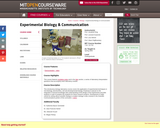
7.02 and 7.021 require simultaneous registration. Application of experimental techniques in biochemistry, microbiology, and cell biology. Emphasizes integrating factual knowledge with understanding the design of experiments and data analysis to prepare the students for research projects. Instruction and practice in written communication provided.
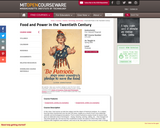
In this class, food serves as both the subject and the object of historical analysis. As a subject, food has been transformed over the last 100 years, largely as a result of ever more elaborate scientific and technological innovations. From a need to preserve surplus foods for leaner times grew an elaborate array of techniques -- drying, freezing, canning, salting, etc -- that changed not only what people ate, but how far they could/had to travel, the space in which they lived, their relations with neighbors and relatives, and most of all, their place in the economic order of things. The role of capitalism in supporting and extending food preservation and development was fundamental. As an object, food offers us a way into cultural, political, economic, and techno-scientific history. Long ignored by historians of science and technology, food offers a rich source for exploring, e.g., the creation and maintenance of mass-production techniques, industrial farming initiatives, the politics of consumption, vertical integration of business firms, globalization, changing race and gender identities, labor movements, and so forth. How is food different in these contexts, from other sorts of industrial goods? What does the trip from farm to table tell us about American culture and history?
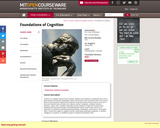
Advances in cognitive science have resolved, clarified, and sometimes complicated some of the great questions of Western philosophy: what is the structure of the world and how do we come to know it; does everyone represent the world the same way; what is the best way for us to act in the world. Specific topics include color, objects, number, categories, similarity, inductive inference, space, time, causality, reasoning, decision-making, morality and consciousness. Readings and discussion include a brief philosophical history of each topic and focus on advances in cognitive and developmental psychology, computation, neuroscience, and related fields. At least one subject in cognitive science, psychology, philosophy, linguistics, or artificial intelligence is required. An additional project is required for graduate credit.
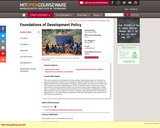
" This course explores the foundations of policy making in developing countries. The goal is to spell out various policy options and to quantify the trade-offs between them. We will study the different facets of human development: education, health, gender, the family, land relations, risk, informal and formal norms and institutions. This is an empirical class. For each topic, we will study several concrete examples chosen from around the world. While studying each of these topics, we will ask: What determines the decisions of poor households in developing countries? What constraints are they subject to? Is there a scope for policy (by government, international organizations, or non-governmental organizations (NGOs))? What policies have been tried out? Have they been successful?"
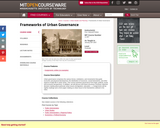
Urban governance comprises the various forces, institutions, and movements that guide economic and physical development, the distribution of resources, social interactions, and other aspects of daily life in urban areas. This course examines governance from legal, political, social, and economic perspectives. In addition, we will discuss how these structures constrain collective decision making about particular urban issues (immigration, educationŰ_). Assignments will be nightly readings and a short paper relating an urban issue to the frameworks outlined in the class.
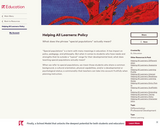
"Special populations" is a term with many meanings in education. It has impact on policy, pedagogy, and philosophy. But when it comes to students who have needs and strengths that lie outside a "typical" range for their developmental level, what does teaching special populations actually mean? When we refer to special populations, we mean those students who share a common background, a cultural orientation, physical capabilities, and/or a developmental or psychological status; a commonality that teachers can take into account fruitfully when planning instruction.
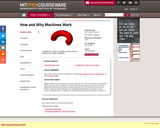
Subject studies how and why machines work, how they are conceived, how they are developed (drawn), and how they are utilized. Students learn from the hands-on experiences of taking things apart mentally and physically, drawing (sketching, 3D CAD) what they envision and observe, taking occasional field trips, and completing an individual term project (concept, creation, and presentation). Emphasis on understanding the physics and history of machines.
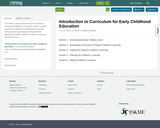
This book is openly licensed from the California Community Colleges, Chancellor's Office. It guides educators of all levels on developing curriculum, looking at learning theories, developmentally appropriate practice, different models of curriculum and MUCH more.
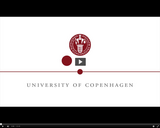
This session will expand the student´s knowledge about human health and quality of life in the context of global and local ecology. Examples will be provided on how environmental management and development influence human health. The session provide an overview of the disease burden attributable to the environment, and much of this burden is placed across different geographical regions of the world. Examples will be presented on the impacts of poor quality water, insufficient access to water, lack of appropriate sanitation and poor personal hygiene. Other examples of environmental health factors included relate to reduced forest cover, unsustainable agricultural production systems, climate change, and poor management of natural resources that significantly influence livelihood, food security and migration patterns.
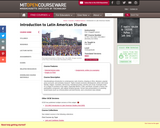
Interdisciplinary introduction to contemporary Latin America, drawing on films, literature, popular press accounts, and scholarly research. Topics include: economic development, ethnic and racial identity, religion, revolution, democratization, transitional justice, the rule of law, and the changing roles of women. Country examples draw on a range of countries in the region, especially Brazil, Chile, Colombia, and Mexico.
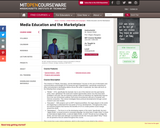
Extensive reading and discussion of case studies on educational technology that focuses on three areas: effective media design, relevant educational issues, and the existing and anticipated methods for distribution and the business concepts behind them. The primary case study is Star Festival, a multimedia curriculum about Japan that encourages users to explore issues of cultural and ethnic identity. Students expected to develop a project that shows an understanding of the types of business models that facilitate educational technology in the classroom. Graduate students are expected to explore the subject in greater depth. Taught in English.
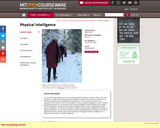
For all of the bodies attached to the many great minds that walk the Institute's halls, in the work that goes on at MIT the body is present as an object of study, but is all but unrecognized as an important dimension of our intelligence and experience. Yet the body is the basis of our experience in the world; it is the very foundation on which cognitive intelligence is built. Using the MIT gymnastics gym as our laboratory, the Physical Intelligence activity will take an innovative, hands-on approach to explore the kinesthetic intelligence of the body as applicable to a wide range of disciplines. Via exercises, activities, readings and discussions designed to excavate our physical experience, we will not only develop balance, agility, flexibility and strength, but a deep appreciation for the inherent unity of mind and body that suggests physical intelligence as a powerful complement to cognitive intelligence.